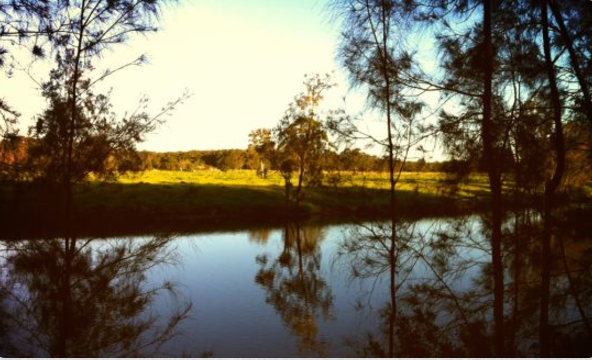Holistic best practice brings benefits in productivity, meat quality

Theme: Economic resilience
Priority: Enhance profitability and productivity
Producer: Josh Gilbert
Location: Wallamba River, NSW
“Our family knows that best practice farming practices have productivity and profitability benefits for farming enterprises and optimise meat quality for our customers.”
KEY POINTS
- Economic resilience is closely linked to environmental management
- Profitability underpinned by animal wellbeing, soil and pasture management
Josh Gilbert counts himself lucky to be a third-generation beef producer working with his parents at their Wallamba River property in Nabiac, NSW.
As a commerce graduate, law student and finance cadet, Josh relishes being able to combine traditional knowledge and experience with access to emerging technology.
Josh and his parents breed stud Braford cattle on the banks of the Wallamba River in Nabiac, NSW, and have found the Braford (Brahman and Hereford-cross) have adapted well and can cope with extreme heat and parasites.
The Gilberts aim to produce high-quality genetics based on existing stud cattle bloodlines for other beef farmers to use in their herds. This aim results in bulls that produce cattle that can efficiently turn quality pasture into meat, producing more kilograms of beef per hectare and reducing greenhouse gas emissions per kg of beef produced.
As a relatively small stud, the Gilberts spend a lot of time with individual animals to closely monitor their health and wellbeing. This individual focus has led them to embrace low-stress stock handling, which requires an understanding of natural behaviours such as the preference to be part of a herd, and regular handling and exposure to yards for cattle from an early age.
Josh and his family are also conscious of the environmental responsibilities associated with managing a riverside property with direct ocean connection. Their soil and pasture management approaches include regular stock rotation and mulching to help grow high quality pasture, reduce erosion and pugging (damage caused to pasture by cows tearing up the paddock’s soil structure) as well as recycle nutrients and control weeds. The Gilberts have also invested in shade shelters and tree-planting to reduce heat stress and increase biodiversity on farm.
They aim to keep cattle out of the waterways through fencing and installation of off-stream watering points, which has the added benefit of reducing river bank erosion and water contamination from nutrients.
“Our family knows that the long-term viability of beef cattle production relies on the adaptation and adoption of environmentally-sound farming methods, while ensuring animal wellbeing standards are adhered to at the highest level," says Josh. "We also know that best practice farming practices have productivity and profitability benefits for farming enterprises and optimise meat quality for our customers.”